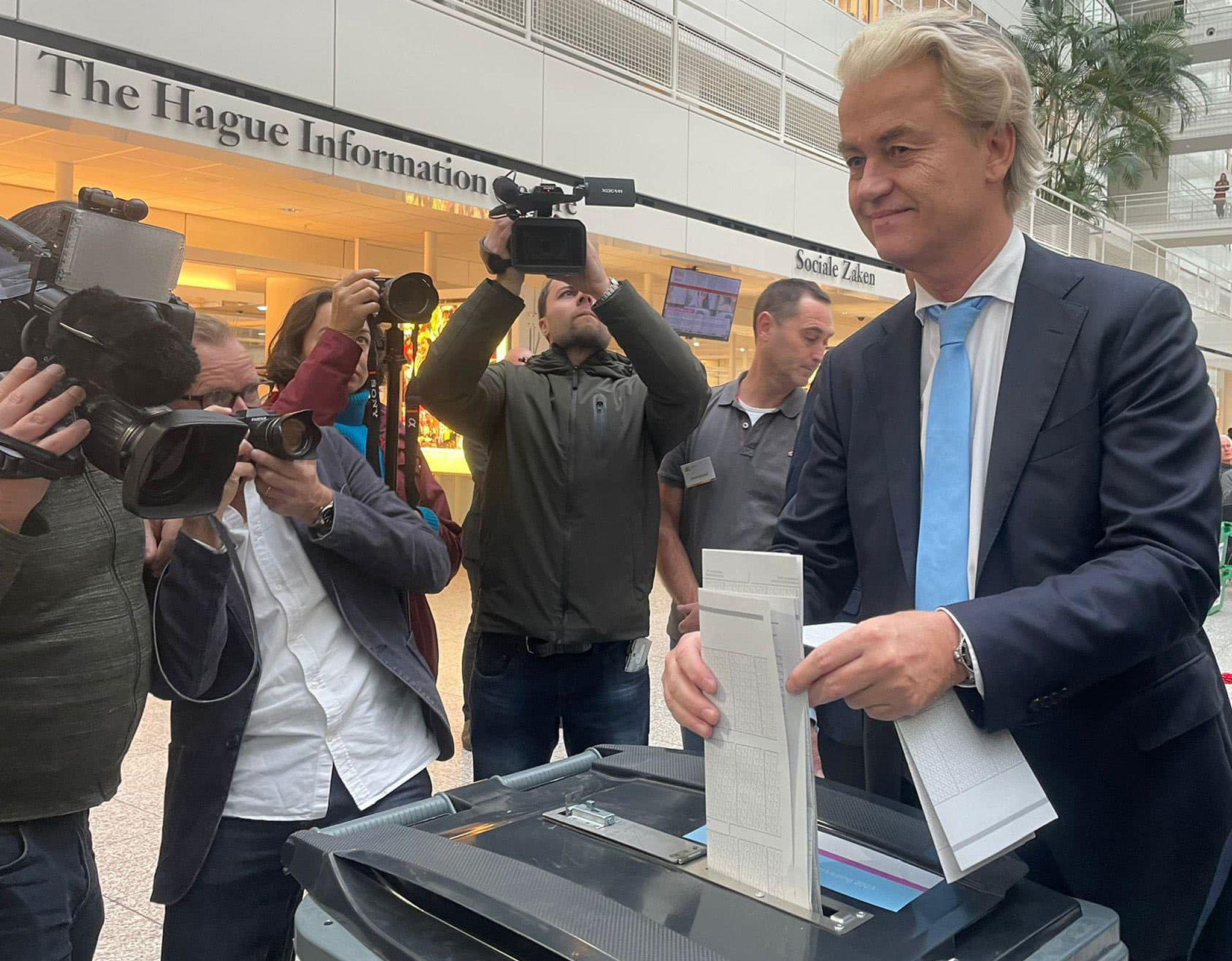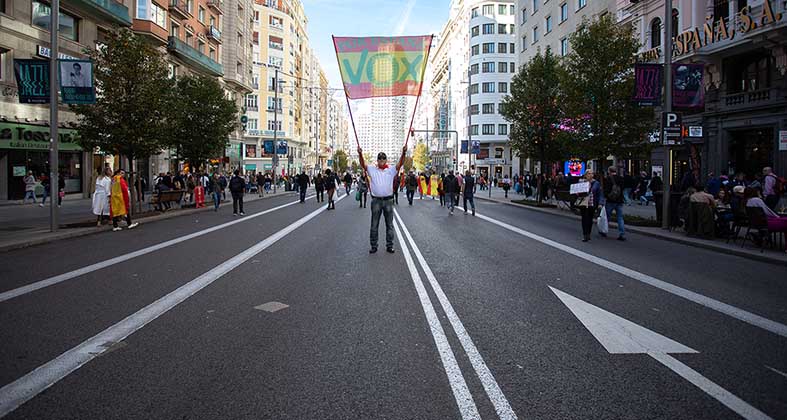
Francoist División Azul (Blue Division) during his visit to Madrid in November
The Spanish election results have served to energise the more astute of nazi elements, who are busy bolstering links with like-minded Europeans. Roger Pearce reports
This article was first published in the Winter 2023/24 of Searchlight magazine
A narrow victory for Socialist Prime Minister Pedro Sánchez and his allies has brought a coalition of conservatives, populists and open nazis onto Madrid’s streets. While these forces are too divided to form a credible opposition to Sánchez, the Spanish far right has greater momentum than at any time since the death of Franco. And Spanish nazis are again seeking to network with some of the most militant Hitler-worshippers in Europe.
Isabel Peralta, a 21-year-old history student, has been seen regularly at the violent demonstrations outside the headquarters of Sánchez’s party in Calle de Ferraz. Apologists for the conservatives and populists who claim to lead these demonstrations have tried to argue that Peralta was shouted down and banned from later demonstrations, but this is blatantly untrue.
Although it is true that the events included a wide range of political tendencies, the fact is that Peralta continued to be visible on the front line, together with other leading figures on the Spanish fascist and nazi scene. The Falangist anthem Cara al Sol and other songs and symbols of Spain’s anti-democratic past have been regular features at Calle Ferraz.
Football hooligan gangs and skinheads have also played a prominent role in the street violence, and police have often had to use tear gas to disperse the crowds. Peralta and her allies, who include nazi veterans active since the 1960s, hope to channel the more intelligent elements of these mobs into a new, cadre-based organisation called Sección de Asalto (Assault Section), whose objectives are obvious from its name and its initials, SA.
This blatant nazi symbolism is unsurprising. Peralta has never disguised her commitment to national socialism, which led to her being excluded from Germany. She has continued to maintain links with one of Germany’s most militant neo-nazi parties, Dritte Weg, whose leader Matthias Fischer visited Madrid for the November 20th anniversary of the death of Falangist leader José Antonio Primo de Rivera.
This was the second time that a Dritte Weg delegation has visited Madrid. They are also part of a European network that includes the Nordic Resistance Movement (banned in Finland as a terrorist organisation), several football hooligan mobs and Peralta’s friends at the British nazi magazine Heritage and Destiny.
Members of Peralta’s SA were in Munich in November to join Dritte Weg’s celebration of the centenary of Adolf Hitler’s “Beer Hall Putsch”.
At the start of December, Peralta spoke in Valencia at a meeting organised by another small ultra-militant fascist group España 2000, led by a controversial lawyer called José Luis Roberto, who has combined violent extremism with owning gyms and clothing companies and is also known for representing “night club entrepreneurs” and the prostitution industry.
Another fascist lawyer linked to Peralta’s own organisation is José Luis Jerez Riesco, a prolific writer and activist whose involvement with the most militant sections of Spanish fascism dates back to the days of CEDADE and the notorious violent networker Stefano Delle Chiaie. Jerez and another CEDADE veteran, retired architect Ramon Bau who now leads the openly nazi Devenir Europeo, are among the septuagenarians advising Peralta.



